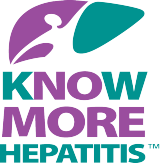Know Your Risks for Viral Hepatitis
May is Hepatitis Awareness MonthNASHVILLE – Hepatitis C is a deadly but treatable disease. That’s why the Tennessee Department of Health is sharing a reminder about the importance of getting tested. May is Hepatitis Awareness Month, a perfect time to learn your status and risks for infection.
“There are three types of viral hepatitis: Hepatitis A, Hepatitis B and Hepatitis C. Each of these is transmitted uniquely and causes separate illnesses,” said Carolyn Wester, MD, MPH, medical director of the TDH HIV/STD/Viral Hepatitis section. “Vaccines are available to prevent Hepatitis A and Hepatitis B infection. There is currently no vaccine to prevent Hepatitis C, so it’s very important to know your status, use commonsense measures to prevent it and seek treatment if you have it.”
Millions of people unknowingly are infected with Hepatitis C or other variants of the disease as a result of exposure, which may have occurred decades ago. The Centers for Disease Control and Prevention recommends all individuals born from 1945 through 1965 be tested for Hepatitis C infection. Individuals of any age should be tested for Hepatitis C if they have any additional risk factors.
The more common forms of viral hepatitis in the U.S. include:
Hepatitis A – This form of hepatitis is usually caused by unintended ingestion of fecal matter from close contact with others or from contaminated food or drinks. Hepatitis A vaccination can prevent you from getting it. Get vaccinated if you are at risk. Risk factors include having direct contact with someone who has hepatitis A, drug use (injection or non-injection) or being a man who has sexual contact with men.
Hepatitis B – Hepatitis B is usually caused by infected blood or unprotected sex. Hepatitis B vaccination can prevent you from getting it. Get vaccinated if you are at risk. Risk factors include having a sexual partner with Hepatitis B, having chronic liver disease or HIV infection or injection drug use.
Hepatitis C – This form of hepatitis is caused by contact with blood from an infected person. This may occur when injecting or snorting drugs, receiving unregulated tattoos or may have occurred if you received a blood transfusion or organ transplant prior to 1992. There is no vaccine for Hepatitis C. Know your status and get treatment. Viral Hepatitis B and C can live for many years, even decades, in the body without causing any symptoms. These diseases may destroy the liver gradually with no major symptoms, and for many individuals the diagnosis comes too late. The vast majority of people with Hepatitis C can now be cured with a 12-week regimen of oral medications.
The Centers for Disease Control and Prevention has a free, five-minute online assessment that can tell you if you are at risk for hepatitis. To take the simple test, go to www.cdc.gov/HEPATITIS/riskassessment.
Learn more about hepatitis at www.cdc.gov/hepatitis/index.htm.
The mission of the Tennessee Department of Health is to protect, promote and improve the health and prosperity of people in Tennessee. TDH has facilities in all 95 counties and provides direct services for more than one in five Tennesseans annually as well as indirect services for everyone in the state, including emergency response to health threats, licensure of health professionals, regulation of health care facilities and inspection of food service establishments. Learn more about TDH services and programs at www.tn.gov/health.
